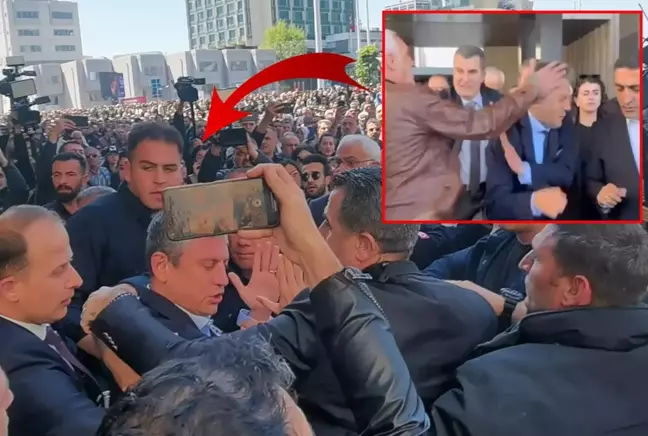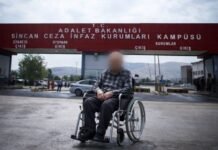Nearly half of all prisoners released in Turkey commit new crimes, according to Justice Ministry data, a figure that has reignited debate over the country’s penal system following a physical assault on opposition leader Özgür Özel by a paroled convict, Turkish Minute reported.
The attacker, Selçuk Tengioğlu, had previously been convicted of murdering two of his children and was released in 2020 on parole.
The May 4 attack on Özel, head of the main opposition Republican People’s Party (CHP), outside a funeral in İstanbul has sparked outrage and intensified scrutiny of Turkey’s conditional release policies.
Justice Ministry statistics, published by the pro-government Türkiye daily, show that 45 out of every 100 people released from prison offend again — a rate comparable to the global average of 40 to 45 percent.
But critics say the issue in Turkey extends beyond criminal behavior, pointing to the government’s use of incarceration as a political weapon.
Tens of thousands — political dissidents, journalists, academics and civil society members — have been jailed since a 2016 coup attempt, often under broad terrorism charges.
Human rights groups and international watchdogs accuse the Turkish government of executing control over the judiciary to silence critics, raising doubts about the motivations behind reform proposals.
More than 400,000 people are currently incarcerated in Turkey, while an additional 600,000 are serving sentences under supervised release, according to government figures.
That places over 1 million individuals under judicial supervision in a country that has faced growing criticism over authoritarianism and the erosion of rule of law.
Justice Ministry officials say reforms are coming.
They claim a new system will address public concerns about impunity, reduce repeat offenses and improve reintegration through tighter oversight of parolees.
But observers say similar promises have been used in the past to justify harsher conditions for political prisoners.
“Committing a second crime becomes easier once the first is done,” a ministry official told Türkiye.
Critics say the real issue is not leniency but selective harshness — where violent offenders are quietly released while political prisoners remain behind bars indefinitely.
Following the attack, Özel publicly questioned whether the incident was enabled by security failings and demanded an investigation into the decisions that put him in close proximity to the attacker.
President Recep Tayyip Erdoğan condemned the assault and called Özel with a message of solidarity.
But many in Turkey’s opposition view such gestures as hollow amid ongoing state pressure on political dissent.
The İstanbul Chief Public Prosecutor’s Office has launched an investigation into the incident.















